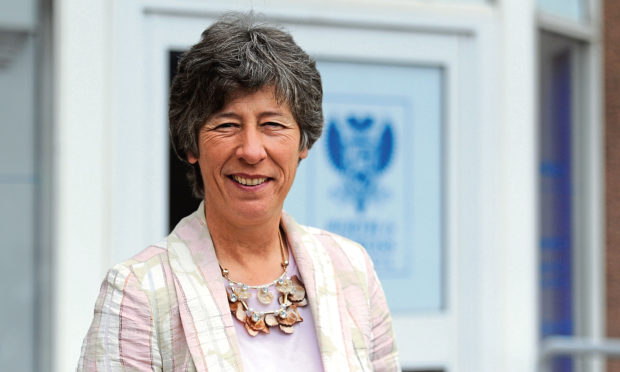A fast-track course in Dundee to tackle teacher shortages has only produced about half of the trainees sought.
Of the 20 places available for the university’s inaugural year of the PGCE with supported induction route, just 11 students completed the course, according to figures obtained by The Courier.
The accelerated Dundee University training path, which was championed by Education Secretary John Swinney at the pilot’s launch, was established in an effort to plug teaching gaps in science, technology, engineering and maths subjects (STEM) in Tayside and Fife.
Liz Smith, for the Scottish Conservatives, said the SNP’s failure to train enough teachers was having a serious impact on schools.
“These are very disappointing statistics from a teaching course in Dundee and suggests that the measures meant to tackle teacher shortages are not as successful as hoped,” she said.
Dundee was the first Scottish university to offer the 52-week course that combines teacher education with school-based experience to fast-track graduates into STEM roles.
The subjects include chemistry, computing, home economics, maths and physics.
In an email to the SNP Government in 2016, revealed under freedom of information laws, the Scottish Council of Deans of Education predicted a 40-student intake for the year-long course at Dundee.
The first cohort began their studies in January 2018 with 16 of the 20 places filled, according to Dundee University figures.
Of the five who did not complete the course, four left for personal reasons and one did not meet the required standard.
A spokesman for Dundee University said a large number of applications were received, but only the strongest candidates were accepted.
“All 11 students who completed the supported induction route course in January are now working in Scottish schools, filling vacancies in subjects that have proved persistently difficult to recruit to,” he said.
“These are teachers who would have been lost to the profession had it not been for supported induction as, for a variety of reasons, the traditional teacher education route was unsuitable for them.”
The spokesman said an independent evaluation of the pilot has “drawn overwhelmingly positive feedback”, adding a larger cohort of 26 student-inductees have just started the 2019-20 course.
A spokesman for the Scottish Government, which has launched several fast-track courses to ease the staffing crisis, said: “We expect the number of graduates from these programmes to exceed the target that was set when the alternative routes initiative was announced, which is to support more than 200 new teachers to join the profession in Scotland.”
There were 68 secondary school teacher vacancies in Dundee, Angus, Perth and Kinross and Fife, according to Scottish Government figures published in December.









